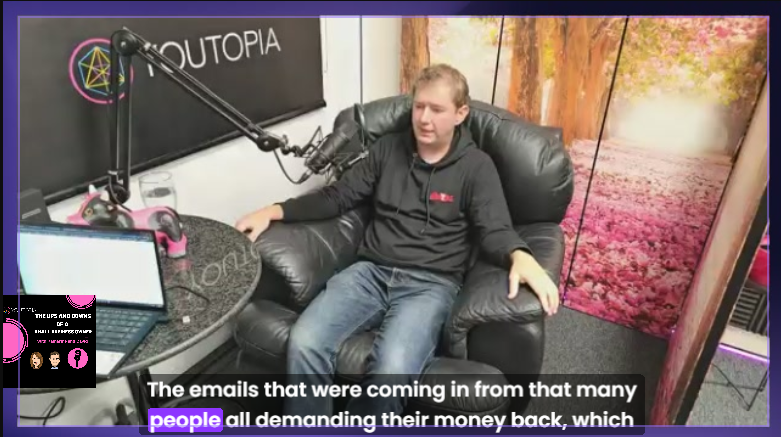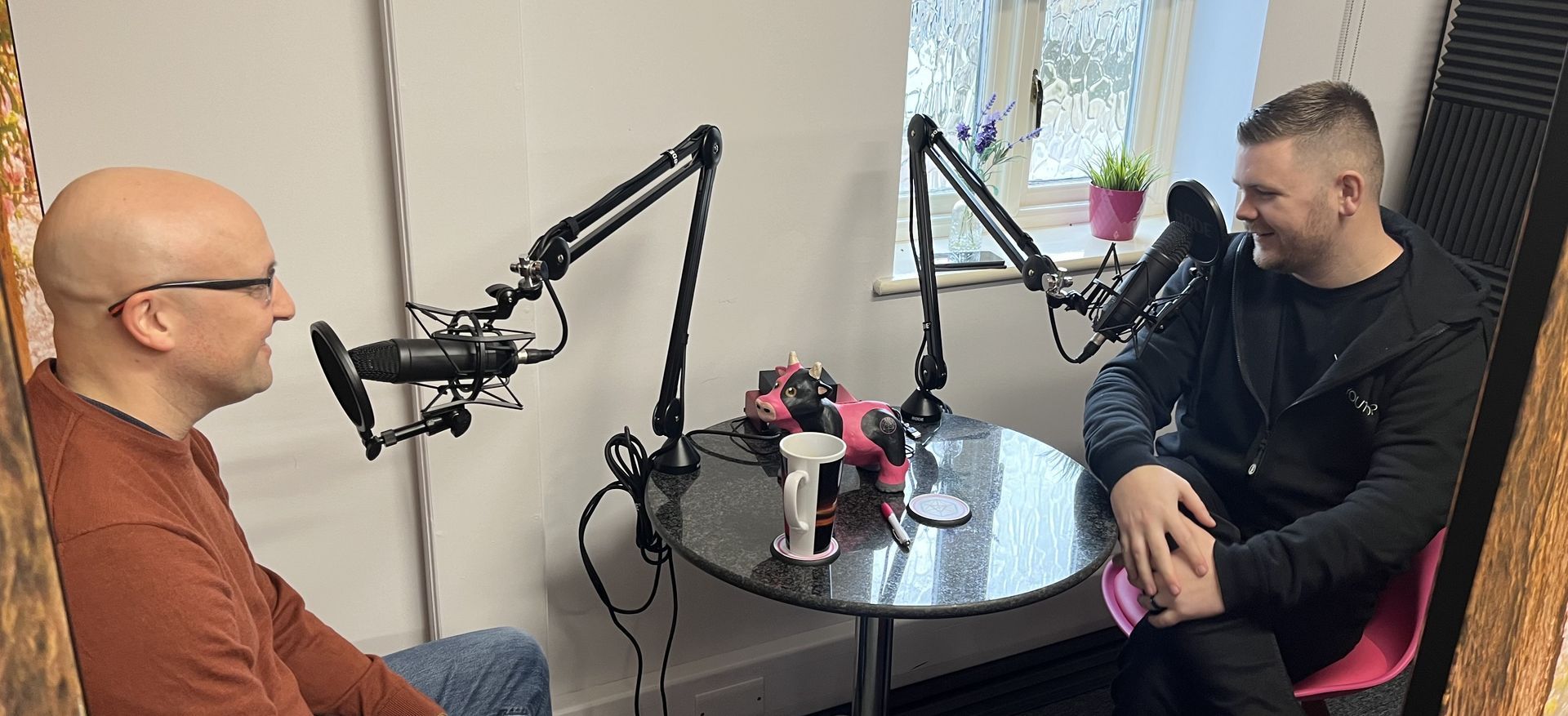April 20 Newsletter
March 31, 2020
We hope that this newsletter finds you and your families well.
This has been quite a month with multiple challenges including; understanding HMRC updates, new working methods, changing business climate and home schooling....
This month's newsletter will explain these updates and provide you with some ideas. Please get in touch if there is anything that we can help you with.
BUSINESS UPDATE
Cash flow tips
What are the key things that business owners should be looking at?
Government initiatives
There is more detail on help available below. We suggest reading through all of them, not all of them may be relevant to your company but is definitely worth knowing the options available. Bear in mind that these aren't an instant solution but they may help you to retain valuable employees, or help in 2-3 months if you experience an income slowdown.
Assess costs
Now is a great time to really look at all of your costs and cancel anything that is unnecessary. Subscriptions are definitely a big area that you could either scale down or remove. Try to be as lean as possible and question every expense line, this will also help to grow your business profitably in the months and years ahead.
Speak to suppliers
It may seem a cliche but communication really is key. If you foresee problems ahead, give them a call. You maybe surprised at how flexible they can be, such as deferred payments, payment holidays, downgrade on service (goods). You will then have more information about upcoming payments and what is and isn't possible.
Speak to customers
Again, this is about maintaining your customer relationship and also having advance knowledge if there may be payment issues coming up. If your customer really is struggling, consider different payment terms or a reduction of service/goods. At least you will have a realistic view of the money that you can expect to come into your business and can build your cash flow plans with greater confidence. There may also be help or advice that you can give them increasing customer loyalty in the future.
Speak to employees
I know, there's a theme here... employees will be anxious and worried. Try to be as transparent as possible and talk through plans for the coming weeks/months with them. They may also be able to give you valuable insights into your business.
Contact your accountant
I'm sure your accountant has already been in touch with you to explain the upcoming HMRC changes and initiatives and how they will affect your business. But keep talking to them, they really are the best placed to offer help and advice personalised to your business. We have also been supporting our clients by talking through any concerns such as juggling workloads with childcare, what are the different courses of action to take and how do each of these scenarios affect their cash position now and in the future.
Build a cash flow forecast
Use all of the information that you have gathered after; speaking to suppliers, customers, employees, reducing costs and seeing what help you are eligible for and when you might be able to receive it, then start to put together a new base line forecast. Once you have a base, you can then start working on different scenarios based on e.g. receiving a grant, sales dropping by 20%, etc. This will highlight any potential cash flow gaps, this is not always easy reading but it will give you a realistic view so that you can put together a plan to manage the gaps.
Consider new opportunities
The pandemic hasn't been all bad news for businesses, some of our clients are experiencing huge growth due to changing demand and consumer spending patterns. There may also be new opportunities for your business if it is possible for your business to pivot. Are you able to trade in a different way, or provide a different service using your key skills and customer base? This is always something worth exploring.
Remember that this will end, we don't know when but it will end. So do what you can to get through the next few weeks. Also use this as a time to work on your business, think strategically and use it as an opportunity to build relationships and streamline your costs so you are in the best possible position for growth in the future.
HMRC UPDATE
New government initiatives
The UK government have announced a variety of initiatives that may help struggling businesses. Please see below a summary of help available together with eligibility details and how to apply (nb this is correct at time of writing).
Coronavirus Business Interruption Loan Scheme (CBILS)
What is it?
An emergency interest-free loan scheme launched on 23rd March. Individual businesses will be able to apply for loans up to a mximum of £5 million. The Government will pay the interest for 12 months and will guarantee 80% of the loan. The scheme is organised through the British Business Bank and will be delivered through commercial banking partners. Different finance types available are; term facilities, overdrafts, invoice finance facilities and asset finance facilities.
Eligibility?
Any company with a turnover up to £45 million can apply.
How to apply?
Go to the British Business Bank website to get full details. The fastest way will be to apply directly to one of the bank or finance companies that will supply the loans. You will probably be asked to produce the following information: 3 years of full accounts, last 6 months of bank statements, last 6 months of personal bank statements, up to date management accounts, aged debtors and creditors, debt structure chart, statement of personal assets and liabilities for directors.
Tax and VAT bills delayed
What is it?
Payment of key taxes will be automatically deferred to provide businesses with a form of interest free loan.
VAT - any payment due between 20th March to 30th June 2020 is deferred until March 2021.
Income Tax Self-Assessment - the July 2020 payment on account will be deferred until January 2021.
Eligibility?
Any company or individual due to make a VAT payment or make a self-assessment payment on account.
How to apply?
No need to apply these will be automatically applied to your accounts. For VAT you will still need to submit your vat returns on time, but make sure that you remember to cancel the direct debit if this is how you usually pay your VAT bill. Please remember that this is a deferral so try to put the money aside and only use if absolutely necessary.
HMRC Time to Pay Service
What is it?
Struggling businesses and self-employed can ask HMRC for more time to settle tax bills. An example of this is a PAYE payment deferral.
Eligibility?
Decisions will be made on a case by case basis.
How to apply?
Call the HMRC dedicated helpline: 0800 024 1222
Business Rates
What is it?
There will be a one year business rates holiday for all businesses in England in the retail, hospitality and leisure sector. This will mean lower bills from April 1.
Eligibility?
Your business needs to be in a qualifying business sector.
How to apply?
This change will apply automatically from the next Council Tax bill in April 2020. However, some local authorities may have to reissue bills.
Cash grants for retail, hospitality and leisure
What is it?
On top of the business rates holidays, cash grants of up to £25,000 will be available for smaller businesses occupying retail, leisure and hospitality premises. Funds should be available sometime in April but exact timescales will depend on how quickly local authorities can respond.
Eligibility?
Businesses must have a rateable value between £15,000 and £51,000.
How to apply?
Local Authorities will write to businesses that meet the criteria. Enquire with your local authority to confirm the position.
Small business grant
What is it?
Approximately 700,000 of the smallest businesses in England will be entitled to a one-off, non-repayable grant of £10,000.
Eligibility?
Any businesses currently eligible for Small Business Rate Relief (SBBR) or Rural Rate Relief will qualify. These payments could be up and running in April.
How to apply?
Apply for the emergency funding directly from your Local Authority.
Coronavirus Job Retention Scheme
What is it?
Government will cover 80% of the salaries of workers who remain on payroll but are temporarily not working during the coronavirus outbreak, up to a maxinum of £2,500 per month. Employers don't have to top up the remaining 20%, this is optional.
Eligibility?
Employers must; designate affected employees as 'furloughed workers', inform the employee of their new status and then inform HMRC about the employees that have been furloughed and their earnings. This may also apply to company directors as long as they too do nothing, apart from statutory duties.
How to apply?
Employers will submit claims via an online portal. We are awaiting details from HMRC as to when the portal will be ready. Payments will be calculated from the individual's PAYE history.
Self-employed Income Support
What is it?
Government will pay self-employed people across the UK a taxable grant worth 80% of their average monthly profit. This will be calculated from up to three years of tax filings (if available), and will be capped at £2,500 per month.
Eligibility?
Individuals must show that:
They earn over 50% of their income from self-employment or partnership.
Earn no more than £50,000 as an average of their annual earnings.
Are adversely affected by the coronavirus by demonstrating a loss of income.
Already be self-employed and have filed a 2018-19 tax return.
Please note that dividend earnings are not included and newly self-employed will not be eligible.
How to apply?
HMRC will contact eligible tax payers and tell them how to apply. Applications will be made using a simple online form which should be up and running by the beginning of June.
Statutory sick pay
What is it?
Any businesses with fewer than 250 employees will have the cost of providing 14 days statutory sick pay (per employee) refunded by the government in full.
Eligibility?
It will apply from day 1 rather than the usual day 4 of illness, even if the individuals have no symptoms.
How to apply?
Usual reporting methods via payroll.
OUR FAVOURITE FREE APPS....
LinkedIn
A great way of connecting with other businesses on social media. Businesses are facing very similar issues at the moment, so it has a community feel to it.
WhatsApp
We use WhatsApp to communicate within the team, with clients and with our families! We can share images, gifs and even have video calls (up to 4 people).
Canva
Easy way to produce professional looking graphics to use on marketing, emails and social media.
Stay safe,
Katherine and David

In Part 1 of this series, Dr Anita Devi opened the conversation on the rising complexity of SEND and the need for intentional, values-driven provision. Her reflections focused on inclusive leadership, purposeful commissioning, and the principle that less can often be more . In this second part, I’d like to continue the conversation — but from a financial perspective. My name is Katherine Robertson. I’ve spent over 10 years working with organisations across sectors including the education sector, helping them to navigate their finances confidently and strategically. What I’ve learned over that time is simple: money follows priorities — but only when we lead with clarity . And now, with SEND needs rising faster than school income, we must work smarter than ever with the resources we have. 🎯 From Stockpiling to Strategic Spending In 2024, the Department for Education wrote to 64 academy trusts, concerned that some were holding onto reserves more than 100% of their annual income . These aren’t just large numbers — they are untapped opportunities. Of course, we know why these reserves exist: financial uncertainty, poor capital funding, and the understandable desire to protect future viability. But if money meant for today’s pupils is held for tomorrow’s problems , we risk doing a disservice to the very learners we aim to support. That’s why we’re asking an important question: Can schools and trusts use their reserves to strengthen inclusion and SEND support now, without compromising their long-term financial security? Our answer is yes — with the right approach. 🧩 Applying Financial Wisdom to Inclusive Practice We are not advocating reckless spending or draining reserves dry. On the contrary, we work with leaders to build a clear, defensible strategy for using reserves wisely , backed by robust modelling, compliance with DfE guidance, and an unwavering focus on improving outcomes for children with SEND. Together with Dr Anita Devi, we bring dual lens: educational insight and financial clarity. Here’s how we help to: ● Identify untapped funding within existing reserves ● Co-develop an evidence-led SEND investment plan ● Align to DfE expectations on reserve levels and financial health ● Build the narrative for governors, trustees, auditors and regulators ● Support ongoing evaluation to ensure value for money and impact It’s not about spending more. It’s about spending better . 🔄 Releasing Funds. Reinforcing Purpose. SEND needs are not going away — and nor are the financial pressures. But when finance and inclusion experts work together, we can unlock solutions that support both pupil outcomes and institutional resilience . With careful planning, strategic reserve use can: ● Fund early intervention ● Invest in staff development ● Improve provision infrastructure ● And reduce future costs from reactive SEND placements or escalation It’s a long-term gain — and a value-led approach to financial governance. 💬 Let’s Continue the Conversation If you’re sitting on reserves and wondering how best to use them — or if you’re just ready to rethink how your SEND resources are working for you — we’re here to help. We offer a tailored advisory service that helps schools and trusts plan, invest and lead with both head and heart. 📩 Reach out at SEND_Finance@youtopia.co.uk to book a preliminary conversation. Because sometimes, the smartest way to save — is to spend with purpose. Author: Katherine Robertson Strategic Finance Expert and Education Consultant In partnership with Dr Anita Devi – Leading SEND Specialist

Inclusion is desirable, yet it is complex. In this two-part blog, we begin to unravel the challenges of increasing needs in education and diminishing resources. In this article, Dr Anita Devi explores some of the many challenges Educators in England currently face. Her intent is to extend perceptual thinking from problem to solution. In Part 2, Katherine Robertson will unpick some of the financial levers for consideration. I have worked in the education sector for a fair few decades now. Am I showing my age? Possibly, but also my experience and out of that experience is born wisdom. Wisdom is applied knowledge with the benefit of lived experience and hindsight. To broaden our thinking, I have decided to focus on three areas: Rising needs in the classroom – ensuring each child receives an educational experience that is progressive, whilst meeting their needs Less is more – applying a structured and systematic approach to providing support for special educational needs and disability (SEND) Commissioning with purpose – intentionally involving others, when needed. Since the increase in needs always outmatches the rise in resource funding, sadly we will always be in a deficit. This is not about being despondent, but hopeful through responsive and creative solutions. In many life situations, we face elements of the unknown and so we put in place checks and balances to ensure we maintain stability. If our own personal finances were continuously in the red, we would be faced with three options: Reduce spending Increase income Look for alternatives In the education world whilst options 1 and 2 may be possible to some degree, it is restricted and ultimately option 3 has been our default; especially if we are to adhere to the core principles of The Salamanca Statement (1994) and more closely to home, The Children and Families’ Act 2014. Rising need in the classroom Those who lead on inclusion and /or SEND need to simplify systems to ensure those learners who require additional and adaptive provision receive it. I have expanded more on this in a July 2023 booklet, which you can download here . If as a leader, you understand the fundamentals of an inclusive provision framework, you can reduce the paper trail to make it purposeful, without compromising on keeping a diligent paper trail of evidence. This will also ensure you know whether what is in place is having an impact or not. SEND: It is time to lead differently . Less is more There are a number of core decisions to be made when additional provision is put in place. For example, in or out of the classroom? How long is the defined additional support required and most importantly what is the expected outcome from the additional support? For far too long, we have assumed the ‘forever’ model when it comes to interventions or additional support. We have often omitted to discern short-term from long-term, as well as factor in the negative impact of too many interventions simultaneously. Short-term interventions, if assessed and targeted well can (in many instances) provide the learner with new skills and/or increased independence. This is a desirable outcome, as none of us is truly seeking to create a dependency model. Equally, administering too many interventions simultaneously takes away from the exploratory nature of interventions i.e. what’s working and what needs to change. We have indeed moved away from the ‘medical model’, however, some of the basic principles still need to be considered. In response to a medical condition, a doctor would not prescribe multiple medications or remedies simultaneously. Due care and consideration would be given to the negative interactive impact of one solution upon another. We need to apply a similar approach to inclusion and SEND. This is not denying that a child may have multiple needs, but sometimes it is about focusing on one thing at a time. Commissioning with Purpose This has been a bugbear of mine since 2018 , if not before! As a previous SEND Advisory Teacher, I was always intentional about ‘adding value’ to what is already in place in any setting. As a previous Senior Leader / SENCO, I was always intentional about securing services that provided ‘value for money’. I’ve worked with The Audit Commission on this and The National Audit Office, not to mention Business Managers and local authorities. I would also encourage readers to explore their ‘decommissioning process’. As a long-standing Education Change Consultant, my team & I always write our exit plans before we go into support. This is regardless of whether we are working in the UK or overseas. I am continuously amazed how many schools/colleges rely on the same service for years, even if there is no impact evidence of change through the input they are buying in. Over the years, training head teachers at national conferences, I have always advocated ‘procurement with precision’. Even at local authority level, I think provision would be better if Porter’s Forces were applied during the annual review of an EHCP in regard to placement choices, especially non-maintained Independent schools (NMIs). Supplier power through exuberant price hikes, in a time when there is a shortage of places, is both immoral and financially unsustainable. This is just the start of the conversation, but with a few systemic tweaks – schools and colleges can begin to look differently at provision. Still meeting the needs of children and young people but reducing the strain on financial resources and human manpower. Do get in touch if you would like to find out more. Author: Dr Anita Devi dr. h.c. Dr Anita Devi , leading SEND specialist, and Katherine Robertson , strategic finance expert, have joined forces to offer a new advisory service for schools and colleges . This service is designed to provide strategic financial governance of SEND provision, focusing on efficiency, effectiveness, and value for money . We help you explore financially sustainable solutions that support early intervention, improve outcomes, and make the most of every pound spent, without compromising on quality. If you're ready to rethink how SEND resources are used in your setting, contact us for a preliminary conversation at SEND_Finance@youtopia.co.uk 📢 And keep an eye out for our upcoming blog







